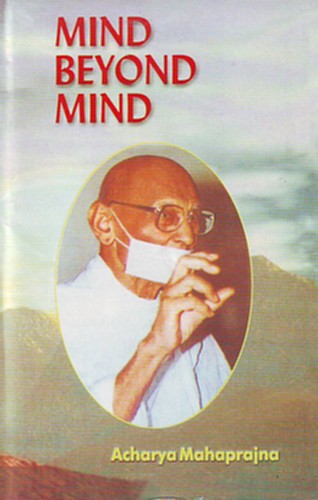
.
I believe that human nature can be changed and the consciousness of man can be purified and freed from all kinds of limitations imposed upon it by the mind. The soul is no doubt influenced by factors other than itself, but it is capable of eliminating external influences. External influences are operative only when the soul has been seized by Kasaya or passions. These passions impose upon the soul false notions regarding itself and the external world. Anger, conceit, deceit and greed are the four passions, which contaminate consciousness. All these passions constitute Kasaya. In a state of Kasaya the inherent powers of the soul become weak and the external conditions overpower it. The Agamas have illustrated this fact in the following way. Take two balls of clay, one wet and the other dry. Strike these balls against a wall. The wet ball will stick to the wall and the dry one will break and fall. If the wall itself is wet, the dry ball may leave some patch on it. Consciousness alloyed by passions is like the wet ball. It is in this state only that external conditions influence it. When the soul is passionless, they do not influence it. The soul is like the transparent sky. It may be temporarily overcast by clouds, rain and hail, but soon it will assume the purity of its nature. It can never be contaminated once for all. It is never affected by heat and cold. If it is not alloyed with instincts and the awareness born of them, it will not be attached to the external world. What I want to emphasize is that we should not be deluded by the general belief that human nature cannot be changed. We have to get rid of the Loka Samjna also. Instinctive awareness is a subconscious state of the mind. We can come out of the subconscious state of the mind by exertion. We can free ourselves from fear, sexuality etc. and regain the original purity of the soul. We shall not be able to attain this freedom so far as we remain tied down by the irrational beliefs and opinions shared by us with the rest of the society. It needs a lot of hard thinking to attain this freedom. Public opinion and group consciousness exercise a powerful influence on us. We very often try to justify our lack of initiative by saying that what happened to others will happen to us also. This is an irresponsible attitude and we should give it up. The practitioner should relinquish this mentality otherwise he will not succeed.
Behaviorists tell us that it is possible to cast the character of a child in any way we like by bringing it up in particular kinds of environments. The entire development of the child can be conditioned. If all our development is a conditioned development there will be no need to assume the existence of God, because in that case man is his own maker. The fact, however, is that human nature is not a totally conditioned process. In spite of all the external factors, which determine his development, man is still a distinct individual being. He possesses creative consciousness and is not a machine. It may, however, be argued that Sadhana is also an external conditioning force, a behaviorist methodology. It may not be. But there is a potential of its own in each soul. This potential should not be lost sight of when we consider the role of Sadhana. The practitioner should be aware of the external conditions under which he performs Sadhana as well as the potential, which his soul possesses. The process of the purification of the soul cannot be set into motion unless we keep in mind both these factors. We should be very clear about what we intend to achieve by means of Sadhana.
A certain rich man had two sons. He gave them five lakhs of rupees each and asked them to build their own residential buildings in every town of the state they lived in. The sons departed with the money. The elder son returned sad after some time and, when asked by the father whether he had built the buildings, replied that the money he had received was not sufficient to build houses in every town. The younger one also returned and, when asked the same question, replied that he had no need of any house for him because he had made friends in every town and could comfortably live in them.
We too should exercise our own judgments in matters of Sadhana like the younger son of the rich man. What is needed is our own resourcefulness and wisdom Acharya Mahaprajna
Acharya Mahaprajna

